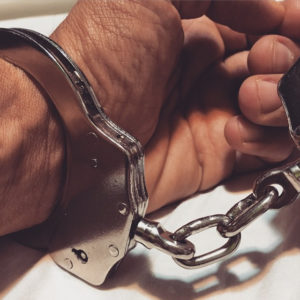New Court Policy to Provide Public Defenders in Police Stations
Last week, the Cook County Court took an important step forward in ensuring Chicagoans arrested by CPD are able to exercise their constitutional right to an attorney. Cook County Chief Judge Timothy Evans signed General Administrative Order No. 2017-01 that enables people in the custody of Chicago Police Department to have access to an attorney free of charge at police stations. Public defenders will now be available to arrestees from 8 a.m. to 4 p.m. on Mondays through Fridays. During all other hours, individuals will have access to attorneys from the non-profit First Defense Legal Aid (FDLA). Signs providing arrestees with the phone number to reach a public defender or FDLA attorney will be posted in all police stations. Chicago Appleseed is proud to have been part of the negotiations with stakeholders that made this possible.
 The new program marks an important change in criminal justice policy in Cook County. Prior to this order, indigent defendants have not been able to access public defenders until their first appearance in court. Statistics obtained through a Freedom of Information Act request by FDLA showed that out of 86,677 arrests that took place in Chicago in 2016, only 838, or less than one percent, were able to consult with a lawyer at the police station. For juvenile arrestees, access to an attorney was even more rare. Only two out of 1,000 children in police custody had an attorney present during police questioning.
The new program marks an important change in criminal justice policy in Cook County. Prior to this order, indigent defendants have not been able to access public defenders until their first appearance in court. Statistics obtained through a Freedom of Information Act request by FDLA showed that out of 86,677 arrests that took place in Chicago in 2016, only 838, or less than one percent, were able to consult with a lawyer at the police station. For juvenile arrestees, access to an attorney was even more rare. Only two out of 1,000 children in police custody had an attorney present during police questioning.
In 1966, the Supreme Court interpreted the Fifth Amendment’s right against self-incrimination to include the right to counsel during custodial interrogations in the landmark case of Miranda v. Arizona. The first 48 hours after arrest are when arrestees are most vulnerable to rights violations such as coerced confessions. Despite this, the overwhelming majority of indigent Cook County defendants have been unable to access legal counsel while in custody.
In the context of Cook County’s high rate of wrongful convictions, arrestees’ lack of access to public defenders at this critical time is especially worrisome. Since 1989, approximately 140 individuals in Cook County have been exonerated following wrongful convictions. In most cases, those wrongfully convicted were the victims of official misconduct, including coercive tactics by police that produced false confessions.
Chicago Appleseed believes that the new policy will protect the rights of all arrestees, and prevent some innocent people from being convicted and sent to prison at great financial and social costs to taxpayers and communities. Chicago Appleseed looks forward to working with DataMade, a civic technology company, to demonstrate the effectiveness of this important criminal justice reform. This research will document how many arrestees will get legal representation, how long it takes to get this representation, and what outcomes occur because of this representation. Our goals are to document and evaluate how providing lawyers to arrestees helps protect their due process rights, and helps the criminal justice system be fairer and more effective.
We applaud this move toward a fairer administration of justice for all persons.
